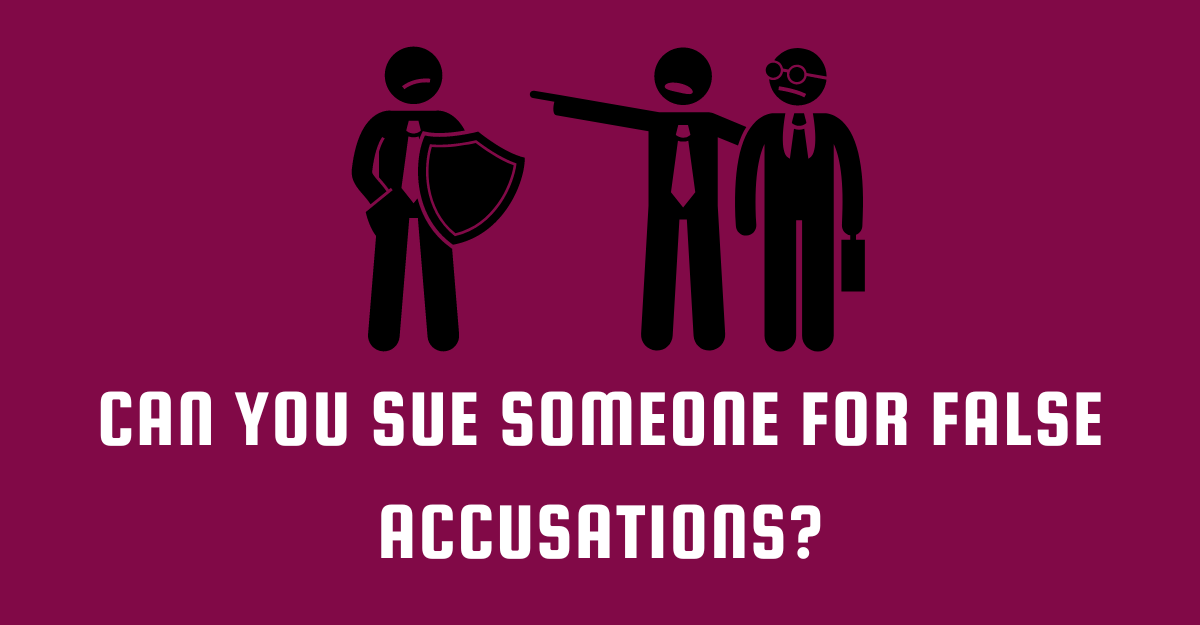
Can You Sue Someone For False Accusations?
False accusations can unleash devastating consequences, leaving a trail of tarnished reputations, shattered relationships, and profound emotional distress. When individuals become the target of such unfounded claims, their world can be upended, and the toll on their personal and professional life can be immeasurable.
Navigating the turbulent waters of false accusations can be daunting, requiring a clear understanding of the legal landscape and the options available for seeking justice. In the face of such adversity, individuals must be aware of their rights and the potential avenues for recourse.
Whether it involves dispelling slanderous rumors in their personal lives or combatting damaging allegations professionally, obtaining expert legal counsel can be instrumental in safeguarding one’s reputation and reclaiming a sense of control.
The Definition of False Accusations
False accusations, also known as defamation or slander, occur when an individual makes a statement or communicates untrue information damaging another person’s reputation. These allegations can be transmitted orally (slander) or in written form (libel) and can be made publicly or privately. Proving false accusations can be challenging, compounded in cases involving drug trafficking, where the stakes are exceptionally high. So, if you’ve been wrongly accused of a serious crime with serious consequences like drug trafficking, you should consult with a drug trafficking lawyer.
Elements of a False Accusation Lawsuit
In drug trafficking cases, false accusations can have severe legal and social repercussions. To pursue a successful lawsuit for false allegations in the context of drug trafficking, the following essential elements must be present:
- a) False Statement: The accused must demonstrate that the statement made about their involvement in drug trafficking is false. Drug trafficking lawyers are well-versed in analyzing evidence to prove the inaccuracy of the allegations.
- b) Publication: For a defamation claim, the false statement about drug trafficking must have been communicated to a third party. Drug trafficking lawyers can investigate the dissemination of such statements to determine their scope and impact.
- c) Damages: Given the gravity of drug trafficking accusations, the damages suffered by the accused can be profound, including damage to reputation, potential incarceration, loss of employment, and loss of personal relationships. A drug trafficking lawyer can assess and present these damages convincingly in court.
- d) Negligence or Malice: Proving malice or negligence in drug trafficking false accusations may be crucial to winning the case. Experienced drug trafficking lawyers can investigate the motives behind the false allegations to determine if malicious intent or reckless disregard for the truth exists.
Defenses Against False Accusation Claims
False accusations in drug trafficking cases can be vigorously defended by the accused. Drug trafficking lawyers may utilize various defenses, including:
- a) Truth: If the statement about drug trafficking is true, it can be a complete defense against defamation claims. Drug trafficking lawyers work to unearth evidence supporting the truthfulness of their clients’ actions and intentions.
- b) Privilege: In some situations, certain communications about drug trafficking may be privileged and protected from defamation claims. For instance, statements made during legal proceedings or to law enforcement officers might enjoy such privilege.
- c) Opinion: Expressing an opinion about someone’s involvement in drug trafficking may be protected under freedom of speech rights. However, if the opinion is presented as a false statement of fact, it may not be considered privileged.
The Role of Public Figures in False Accusation Cases
In drug trafficking cases involving public figures, such as high-profile individuals or celebrities, the burden of proof is often higher in defamation claims. These public figures must demonstrate that false statements were made with actual malice—meaning the accused either knew the information was incorrect or acted with reckless disregard for the truth.
Key Takeaways
False accusations can have dire consequences, mainly when they involve allegations of drug trafficking. In such cases, the services of a knowledgeable drug trafficking lawyer can be invaluable.
While pursuing a lawsuit for false accusations related to drug trafficking is complex, obtaining legal assistance from a seasoned attorney can help ensure that justice is served and reputations are restored.
Remember, exercising one’s right to seek legal recourse can be a powerful deterrent against future false accusations, safeguarding the reputation and well-being of individuals accused of drug trafficking in society.






